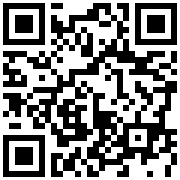作者:富连达发布日期:2023-07-20浏览人数:106
Data Acquisition - DAQ System Guide
MCCWhether you measure current, voltage, temperature, strain force or digital signals, MCC provides high quality hardware devices and associated software and drivers, and can build your own data acquisition system to suit your needs.
What is data acquisition?
We often refer to data acquisition or data acquisition DAQ (Data acquisition), which is the process of quantifying analog signals from the world around us into digital signals for display, analysis and storage on a computer.
A simple example is the use of sensors, such as thermocouples, to convert room temperature into a digital process. Modern data acquisition equipment adds data analysis and reporting software, network connectivity, remote control and monitoring options.
Components of Data Acquisition Equipment
All data acquisition devices include three essential components (ADCs): sensors, signal conditioning, and analog-to-digital converters.
Analog-to-Digital Converters
The analog-to-digital converter is the core component (ADC) of a data acquisition system. As the name suggests, the ADC chip takes data from the environment and converts it into discrete values that can be read by the processor. These discrete values correspond to the smallest detectable change in the signal to be measured.The higher the number of ADC bits (12-bit, 16-bit, 18-bit, etc.), the more discrete the analog signal, and the higher the resolution of the ADC.ADCs are, in essence, similar in resolution to the scale on a measuring tape. A millimeter scale has a higher resolution than a centimeter scale. Which scale is used depends on the object to be measured - as does the ADC resolution.
Sensors (Converters)
Sensors, also known as transducers, convert physical phenomena such as temperature, force, and motion into voltage or current signals that are fed into the middle of a real-world ADC. Common sensors include thermocouples, thermistors, and RTDs for measuring temperature, accelerometers for measuring motion, and strain gauges for measuring force. When selecting an appropriate sensor for a measurement system, it is important to consider the accuracy of the sensor and the signal conditioning methods required to record a readable signal.
Signal Conditioning
In order to improve the quality of the sensor's measurements, it is often necessary to place additional circuitry between the sensor and the ADC. The additional circuitry usually refers to signal conditioning, including amplification/attenuation, filtering, Wheatstone bridges, excitation, linearization, calibration, and cold-junction compensation (CJC). Different sensors have different signal conditioning requirements. For example, strain gages require excitation, bridge and calibration conditioning. Thermocouples have an output voltage of millivolts, so the signals enter the ADC and need to be filtered and amplified between them.
In most cases, the signal conditioning circuitry is included in the data acquisition device, but it may also be part of the transducer. For example, a load cell includes a bridge, calibration circuitry, and amplification. Many microelectromechanical sensors also include a signal conditioning module.
Data Acquisition Options
There are many different devices to choose from:
Data Loggers
Data logging is the recording of data collected over a period of time. Depending on the application scenario, the type of data can include measurements of temperature, voltage, current, humidity, or other signals we are interested in. A data logger is a data acquisition system that contains a built-in processor and embedded predefined software. It can operate as a standalone device, is portable, easy to use and very popular.
All data loggers have local storage for storing data and some include SD slots for extended storage.
Network driven data loggers can be set up to share data over a network. To provide better portability, some data loggers support power supply.
Data Acquisition Devices
Data acquisition devices (USB, Ethernet, PCI, etc.) include signal conditioning modules and analog-to-digital converters, but their functionality requires a connection through a computer. These devices are flexible and can be used in different scenarios. Therefore, data acquisition devices are a popular choice.
Users can use predefined data acquisition software, such as the plug-in device DAQami™, or program them using e.g. Python™, C , DASYLab, MATLAB, and NI LabVIEW™. With a wide variety of data acquisition devices, the flexibility of BUS options and preferred software can provide a customized solution for your unique application.
Data Acquisition Systems
Modular data acquisition systems are designed for integrating and synchronizing multi-channel counting and complex systems with different sensor types. These systems are more complex to integrate and use, but are highly flexible.
Modular systems are the most expensive of all data acquisition devices, but many applications require the functionality of something like a PXI data acquisition system.
Fullerton Relay
Ltd. is a NI alliance, agent, system integrator, mainly NIGPIB, NILABVIEW, NIDAQ, NI boards, NI data acquisition cards and other products. The company has a full set of hardware and software for product testing should be run solutions, the development scope includes ICT, Boundary Scan, functional testing, system testing. Business covers Shenzhen, Guangzhou, Zhuhai, Foshan, Nanjing, Hangzhou, Xiamen, Xi'an, Chengdu, Wuhan, Chongqing, Beijing and other places.
You can contact online customer service if you need!

